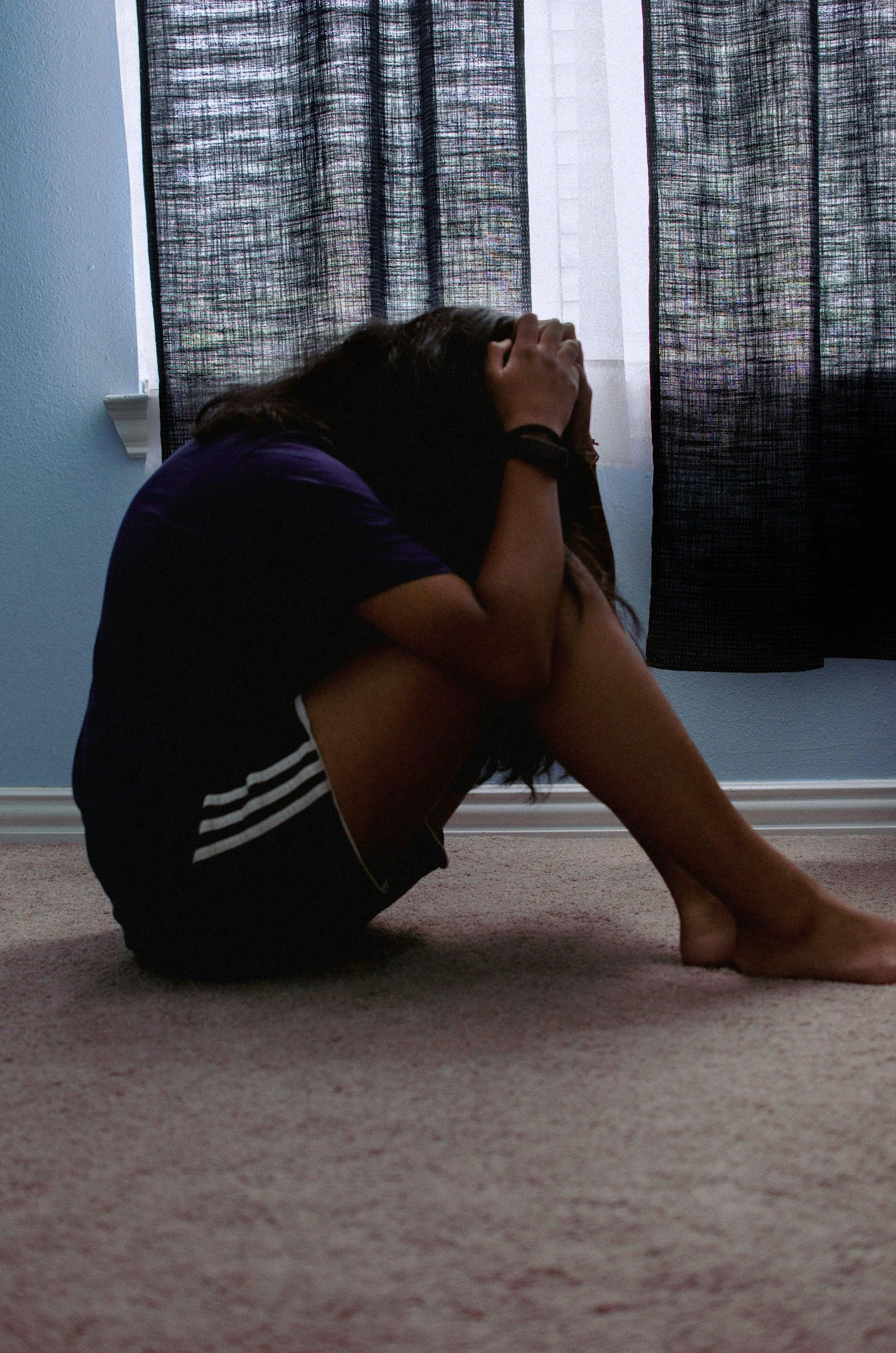The Overlap Between OCD and Eating Disorders: What You Need to Know
Written by Dr. Colleen Reichmann, founder and clinical director of Wildflower Therapy
At Wildflower Therapy in Philadelphia, we often work with people who are struggling with both obsessive-compulsive disorder (OCD) and eating disorders. These conditions can feel incredibly overwhelming on their own but when they overlap, things can get especially complicated. You may feel like your mind is stuck in repetitive loops, your behaviors are driven by rules you can’t seem to break, or your body and brain are locked in a constant tug-of-war. If significant restriction is a part of your eating disorder, then perhaps you, like so many, have had a therapist provide education around how one of the main the side offects of starvation tends to be obsessional thinking. So maybe you have found yourself wondering- it this a side effect of my eating disorder, or is my rigid, obsessional thinking it’s own issue? If any of this sounds familiar, you are not alone.
In this post, we’ll explore how OCD and eating disorders connect, especially anorexia, what the research says about the brain, and why therapy with a specialist who understands both conditions is so important.
Understanding OCD and Eating Disorders
OCD is a mental health condition that is most commonly understood by the general public as being marked by obsessions (intrusive, distressing thoughts, urges, or images) and compulsions (repetitive behaviors or mental rituals meant to reduce anxiety). But another form of OCD that isn’t as commonly talked about is “pure O” OCD, which looks like constant obsessions without clear compulsions. Common obsessions include fears of contamination, fears or harming others, distressing thoughts about sexual activity, or worries about making mistakes. Compulsions might look like hand-washing, checking, counting, or repeating certain phrases.
Eating disorders- such as anorexia, bulimia, binge eating disorder, and ARFID- are complex mental health conditions that go beyond food and weight. They often involve rigid thinking, high levels of anxiety, and difficulties with emotion regulation.
For many people, OCD and eating disorders are intertwined. That is, the very same part of the brain that gets caught in obsessive loops can also fuel rigid food rules, body-checking behaviors, and rituals around eating.
How OCD and Anorexia Overlap
One of the most common intersections we see at Wildflower Therapy is between OCD and anorexia nervosa. Both disorders share traits like perfectionism, rigidity, and a strong drive for control. Here’s how the overlap often shows up:
Food rituals: Cutting food into tiny pieces, eating foods in a certain order, or avoiding “unsafe” foods may begin as anorexia behaviors-but sometimes they begin to function like compulsions, done to relieve anxiety in general even more so than to achieve thinness.
Intrusive thoughts: People with anorexia often experience obsessive thoughts about food, calories, and weight. For someone with OCD, these types of thoughts can also occur, and can become part of the intrusive, distressing OCD cycle, which looks like obsessions and then engaging in compulsive behaviors (like repeated checking of nutrition labels or weighing food).
Rules and rigidity: Both OCD and anorexia thrive on rules. Someone may feel they must exercise a certain number of times per week, or that they must decline social events with food. Breaking these rules can lead to intense distress or guilt, similar to what happens when someone with OCD resists a compulsion.
Perfectionism: The desire to “do things right” can drive both OCD rituals and eating disorder behaviors. Perfectionism can make recovery especially challenging, since it often feels like nothing is ever “good enough.”
What the Brain Research Tells Us
Neuropsychological studies show that both OCD and anorexia involve alterations in brain circuitry, particularly in the areas responsible for:
Cognitive flexibility (the ability to shift between different ways of thinking)
Reward processing (how the brain experiences pleasure and motivation)
Error detection and correction (the brain’s “alarm system” that signals something is wrong)
For example:
People with OCD and anorexia both show hyperactivity in the cortico-striato-thalamo-cortical (CSTC) circuit-a loop that helps regulate decision-making and habits. This overactivity can create a sense that something is “off” or unfinished, driving repetitive behaviors.
To complicate things, research also suggests that starvation itself can make OCD symptoms worse. When the brain is deprived of adequate nutrition, it becomes more rigid, less flexible, and more prone to obsessive thinking. (That’s why it’s so important to determine whether OCD symptoms are a direct result of an eating disorder-or whether the person is experiencing two distinct conditions.)
Neuroimaging has also shown that both OCD and anorexia are linked with difficulty shifting attention away from certain thoughts (like food, weight, or intrusive worries), which is why people can feel “stuck” in mental loops.
Understanding these brain connections can help reduce shame. These patterns are not a reflection of willpower or personal weakness-they’re the result of how the brain is wired under stress.
Why Accurate Assessment Matters
As you can probably tell, when OCD and eating disorders overlap, it can be tricky to know what’s really going on. Is someone experiencing OCD alongside an eating disorder, or are their obsessive thoughts and compulsive rituals a side effect of starvation?
This distinction is crucial because treatment approaches differ. For example:
If a person’s OCD-like symptoms are primarily caused by malnutrition, the first step must be nutritional rehabilitation and restoring the body to stability. Once the brain has the fuel it needs, intrusive thoughts and compulsive behaviors may lessen significantly.
If someone truly has both OCD and an eating disorder, then both conditions need to be addressed simultaneously. Treating only one often leads to a cycle where the untreated condition flares up and interferes with progress.
That’s why it’s so important to work with a therapist who specializes in both eating disorder therapy and OCD therapy. At Wildflower Therapy in Philadelphia, we are trained to assess thoroughly, looking at the full picture of your symptoms, history, and current struggles. We use our assessment to detemine therapeutic course of action.
Therapy for OCD and Eating Disorders
When treating OCD and eating disorders together, therapy needs to be carefully tailored. Some of the approaches we often use include:
Cognitive Behavioral Therapy (CBT)
CBT helps clients identify and reframe unhelpful thought patterns. For OCD, this might mean challenging the belief that something terrible will happen if a compulsion isn’t performed. For eating disorders, it could involve addressing distorted thoughts about body image, food, and worth.
Exposure and Response Prevention (ERP)
ERP is considered the gold standard for OCD. It involves gradually facing fears (like touching a “contaminated” surface) without performing the compulsion (like handwashing). For people with OCD and eating disorders, ERP can be adapted to include exposures around food, eating in public, or resisting body-checking behaviors.
Nutrition and medical support
Because malnutrition can worsen OCD symptoms, working with a registered dietitian and a medical provider is often a key part of recovery. Therapy works best when the body is supported and stable.
Compassion-focused therapy and acceptance approaches
Both OCD and eating disorders are fueled by self-criticism. Learning to approach yourself with kindness, self-compassion, and acceptance can ease the intensity of symptoms and help you tolerate discomfort during recovery.
The Role of Specialized Support
If you or your loved one is struggling with OCD and/or an eating disorder, finding the right therapist matters. Here’s why:
Specialized training: Not every therapist is trained in both OCD therapy and eating disorder therapy. Having someone who understands the overlap ensures nothing important gets missed.
Accurate diagnosis: Distinguishing between OCD symptoms and starvation effects requires clinical skill and experience. A misdiagnosis can delay healing.
Integrated treatment: Recovery is most successful when both conditions are addressed at the same time with a coordinated approach.
Local and virtual options: At Wildflower Therapy, we offer in-person therapy in Philadelphia as well as virtual therapy for people throughout Pennsylvania, New Jersey, Delaware, Vermont, Virginia, Florida, South Carolina, Ohio, and Massechusetts. This makes specialized care more accessible, whether you’re in the city or elsewhere.
Healing Is Possible
It’s important to know that healing from OCD and eating disorders is possible. Recovery may not mean that intrusive thoughts never appear again, but it does mean that they no longer control your life. With the right support, you can build a more flexible, free, and peaceful relationship with your mind and your body.
If you’re reading this and wondering whether what you’re going through is “bad enough” to deserve help-the answer is unabashedly, unquestionably yes. You don’t need to wait until things get worse. Early support can make a huge difference.
Getting Help at Wildflower Therapy
At Wildflower Therapy, our team specializes in both OCD therapy in Philadelphia and eating disorder therapy in Philadelphia. We also provide virtual therapy across Pennsylvania, New Jersey, Delaware, Vermont, Virginia, Florida, South Carolina, Ohio, and Massechusetts so you can access expert care even if you’re not local to the city.
We know that reaching out can feel scary. But you don’t have to figure this out on your own. Our compassionate, skilled therapists are here to walk alongside you with warmth, expertise, and hope.
If you’re interested in learning more or scheduling a consultation, please reach out. Together, we can create a path toward healing that addresses the unique challenges of OCD and eating disorders-with care that truly sees the whole you.
Final Thoughts
The overlap between OCD and eating disorders is complex, but it is also deeply human. Both conditions come from a brain trying-sometimes desperately-to protect you from distress. Therapy can help you learn new ways to cope, restore balance, and reclaim the freedom you deserve.
At Wildflower Therapy in Philadelphia, we believe that with specialized support, recovery is not only possible-it’s within reach. Please reach out today.



